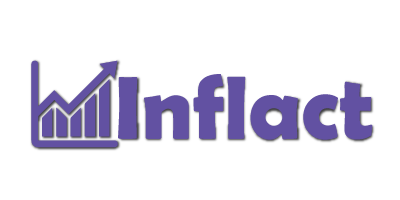Trust is the cornerstone of estate agency success, yet with only 37% of UK consumers trusting estate agents to tell the truth, building genuine relationships through transparency, communication excellence, and digital innovation has never been more crucial for business growth.
The Trust Challenge: Current State of Estate Agent Reputation
The statistics paint a clear picture of the trust deficit facing UK estate agents. According to the most recent Ipsos MORI Veracity Index, just 37% of people in the UK said they trusted estate agents to tell the truth, making the profession the 6th least trusted in the UK. However, there’s cause for optimism—trust appears to be on an upward swing and is at a 7-year high.
Recent research reveals specific pain points affecting client satisfaction:
Top Customer Complaints:
- Delays (24%), lack of communication (23%), and shady valuation tactics (11%) are the most common complaints
- In 2020, there was a 20% increase in formal complaints to the Property Ombudsman about estate agents—with poor communication being one of the top causes for complaint
Yet there’s encouraging news: Research shows estate agent satisfaction is on the up, with home sellers awarding them an average score of 7.2/10, and a massive 42% of all home sellers said they were happy with everything.
Foundation Principles: The London Standard
Looking at successful estate agents in London provides excellent examples of trust-building in practice:
Foxtons has built its brand on technology-led transparency, offering clients a digital hub to monitor their sale or let in real time.
Dexters is known for professional, personalised service and regular communication, with client feedback often praising the reliability and in-depth market knowledge of their agents.
KFH (Kinleigh Folkard & Hayward) consistently scores high for service thanks to its community involvement and honest valuations backed by hyper-local data.
The Five Pillars of Trust Building
1. Radical Transparency in All Communications
Fee Structure Transparency Clearly outlining commission structures and any additional costs at the outset can prevent misunderstandings and build trust. Modern clients expect:
- Upfront disclosure of all fees and costs
- Clear explanation of the service they receive for their investment
- No hidden charges or surprise costs during the transaction
Market Reality Transparency
- Honest property valuations based on current market data
- Frank discussions about realistic timescales
- Open communication about potential challenges or issues
Process Transparency Walk your clients through each step of the real estate process, from initial consultation to closing. This transparency reassures them that you are knowledgeable and have their best interests at heart.
2. Communication Excellence
The New Standard for Client Communication
Research shows the real estate industry must focus on providing customers with timely support to enhance satisfaction and drive long-term business success. The sector received average scores for customer ‘service’ (4.2/5) and ‘satisfaction’ (4.1/5), indicating significant room for improvement.
Best Practice Communication Framework:
- Proactive Updates: Regular progress reports, not just responses to client inquiries
- Multi-Channel Accessibility: Phone, email, text, and digital platforms
- Clear Language: Avoiding jargon and explaining complex processes simply
- Timely Responses: Setting and meeting realistic response time expectations
Technology-Enhanced Communication AI chatbots can qualify leads and answer straightforward questions 24/7, keeping potential customers attended to in real time, while human agents focus on building deeper relationships.
3. Digital Transparency and Control
Client Portal Revolution
Digital products give buyers and sellers the ability to check progress and gauge interest in their property as and when they want. Harnessing these kind of tools gives them some of the control of using a digital-first estate agent with all the benefits of using a traditional estate agent’s expertise and elevated level of service.
Essential Digital Features:
- Real-time transaction progress tracking
- Document access and e-signature capabilities
- Market activity updates and viewing feedback
- Direct messaging systems with agents
- Preference management for communications
Data Protection and Privacy Clients want control over their personal data. Integrating client-facing products with back-end systems like CRM or marketing automation can help you and your clients to seamlessly manage their contact preferences.
4. Demonstrable Expertise and Local Knowledge
Market Authority Stay up-to-date with the latest trends and developments in the real estate market. Provide your clients with accurate information on property values, neighborhood trends, and market conditions.
Continuing Professional Development
- Regular training on market developments and legislation
- Industry qualification maintenance and advancement
- Technology skills to support modern client expectations
- Local area expertise and networking
Evidence-Based Advice
- Market data-backed valuations and recommendations
- Comparable property analysis and trends
- Local infrastructure and development insights
- School, transport, and amenity knowledge
5. Review Management and Reputation Building
The Power of Social Proof
According to Findstack, over 94% of customers read online reviews before they decide to buy something, having lots of positive feedback directly helps attract new clients.
Strategic Review Management:
- Proactive review collection from satisfied clients
- Professional responses to all feedback, positive and negative
- Integration with Google and industry-specific platforms
- Verified reviews that provide credibility and stability
Prioritising verified reviews, which are confirmed to be from genuine clients, ensures the feedback is trustworthy and credible.
Modern Trust-Building Strategies
Community Engagement and Local Presence
Estate agencies can benefit from being active participants in their local communities. Consider sponsoring local events, supporting charitable causes, or engaging in online neighbourhood groups.
Local Trust-Building Activities:
- Sponsorship of community events and sports teams
- Educational seminars on property market trends
- First-time buyer workshops and guidance sessions
- Local area guides and market reports
- Charity partnerships and fundraising initiatives
Technology Integration for Enhanced Service
PropTech for Trust Building Virtual reality is currently at the forefront of PropTech disruption, with around 1.4 million realtors using the technology. Modern tools include:
- Interactive 3D property scans for remote viewing
- Virtual staging for vacant properties
- AR apps for renovation visualization
- Automated marketing and CRM systems for consistent follow-up
Crisis Communication and Problem Resolution
When Things Go Wrong Trust is often built during challenging moments. Have systems in place for:
- Immediate communication when issues arise
- Clear escalation procedures for problem resolution
- Regular updates during delays or complications
- Alternative solutions and contingency planning
- Follow-up to ensure client satisfaction post-resolution
Building Long-Term Relationships
The Referral Economy
Transparent communication throughout one campaign leads to stronger relationships, which leads to more referrals and repeat business.
Relationship Maintenance:
- Annual property market updates for past clients
- First refusal on new properties matching their criteria
- Birthday and anniversary acknowledgments
- Home maintenance tips and local contractor recommendations
- Investment opportunity notifications
Professional Development and Industry Leadership
Thought Leadership Estate agencies can leverage content marketing to position themselves as experts on policy impacts, including:
- Market analysis blogs and reports
- First-time buyer guides and resources
- Local area investment insights
- Government policy impact explanations
- Industry trend predictions and analysis
Measuring Trust and Success
Key Performance Indicators for Trust
Quantitative Measures:
- Client satisfaction scores and NPS ratings
- Online review scores and response rates
- Referral percentages and repeat business rates
- Complaint resolution times and satisfaction
- Digital engagement metrics and portal usage
Qualitative Measures:
- Client testimonial themes and feedback quality
- Word-of-mouth recommendations and brand mentions
- Industry recognition and award nominations
- Community standing and local partnerships
- Team retention and professional development
The ROI of Trust
Business Impact of Trust Building
Immediate Benefits:
- Higher conversion rates from enquiries to instructions
- Reduced price negotiation and increased asking price achievement
- Faster transaction completions and fewer fall-throughs
- Increased client satisfaction and positive reviews
Long-Term Benefits:
- Sustainable referral business reducing marketing costs
- Premium positioning allowing for higher fee structures
- Staff retention and attraction of quality team members
- Community reputation supporting local market dominance
- Crisis resilience through established relationships
Action Plan: Implementing Trust-Building Strategies
Phase 1: Foundation (Months 1-3)
- Audit current communication processes and client feedback
- Implement transparent fee structure disclosure
- Establish client portal or digital communication system
- Create standard operating procedures for client communication
- Begin proactive review collection and management
Phase 2: Enhancement (Months 4-6)
- Develop local market expertise content and resources
- Launch community engagement initiatives
- Implement advanced CRM and automation systems
- Create client education programs and workshops
- Establish thought leadership content strategy
Phase 3: Optimization (Months 7-12)
- Analyze performance metrics and client feedback
- Refine communication processes based on data
- Expand digital services and technology integration
- Develop referral programs and loyalty initiatives
- Plan for scale and team expansion
The Trust Dividend: In an industry where the real estate sector scores 78.4 out of 100 on customer service indices, there’s significant opportunity for agents who prioritize trust-building. London’s fast-paced, competitive property market means that agents who invest in transparent communication, digital innovation, and genuine client relationships can stand out more than ever.
Building trust isn’t a one-time effort—it’s an ongoing commitment to putting client interests first, communicating honestly and consistently, and delivering on promises. In a market where buyers and sellers have more choice than ever, trust becomes your most valuable competitive advantage.




